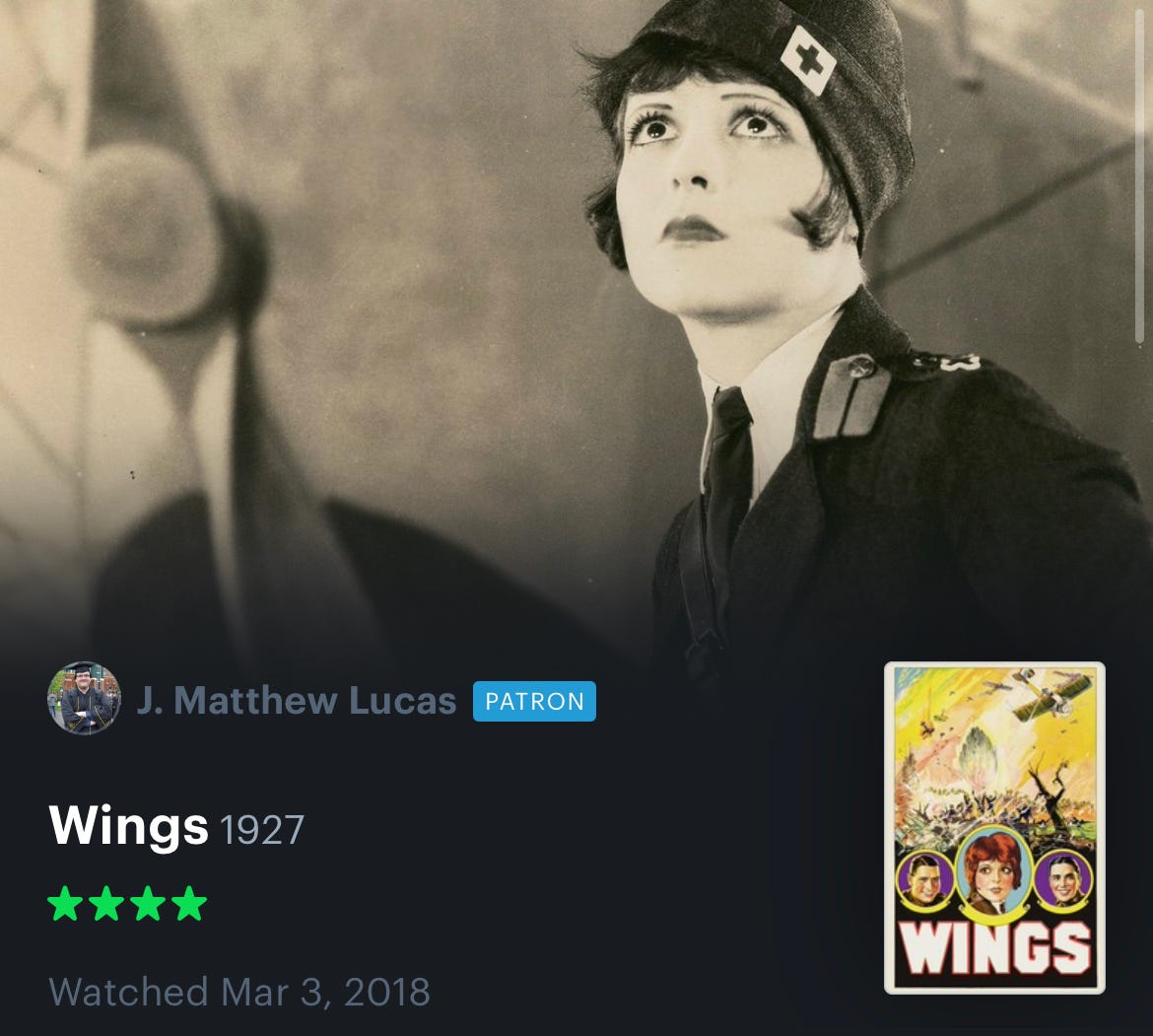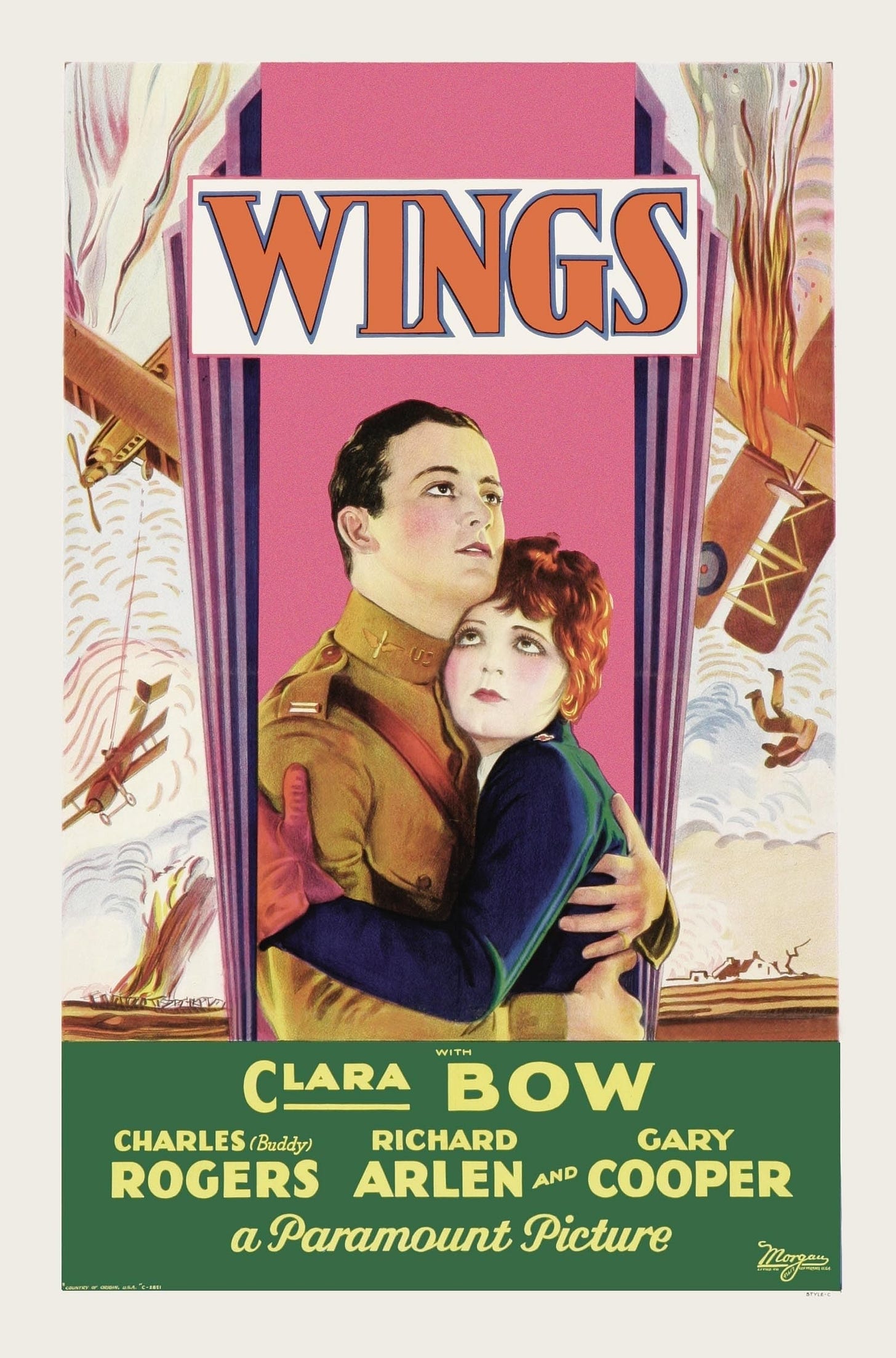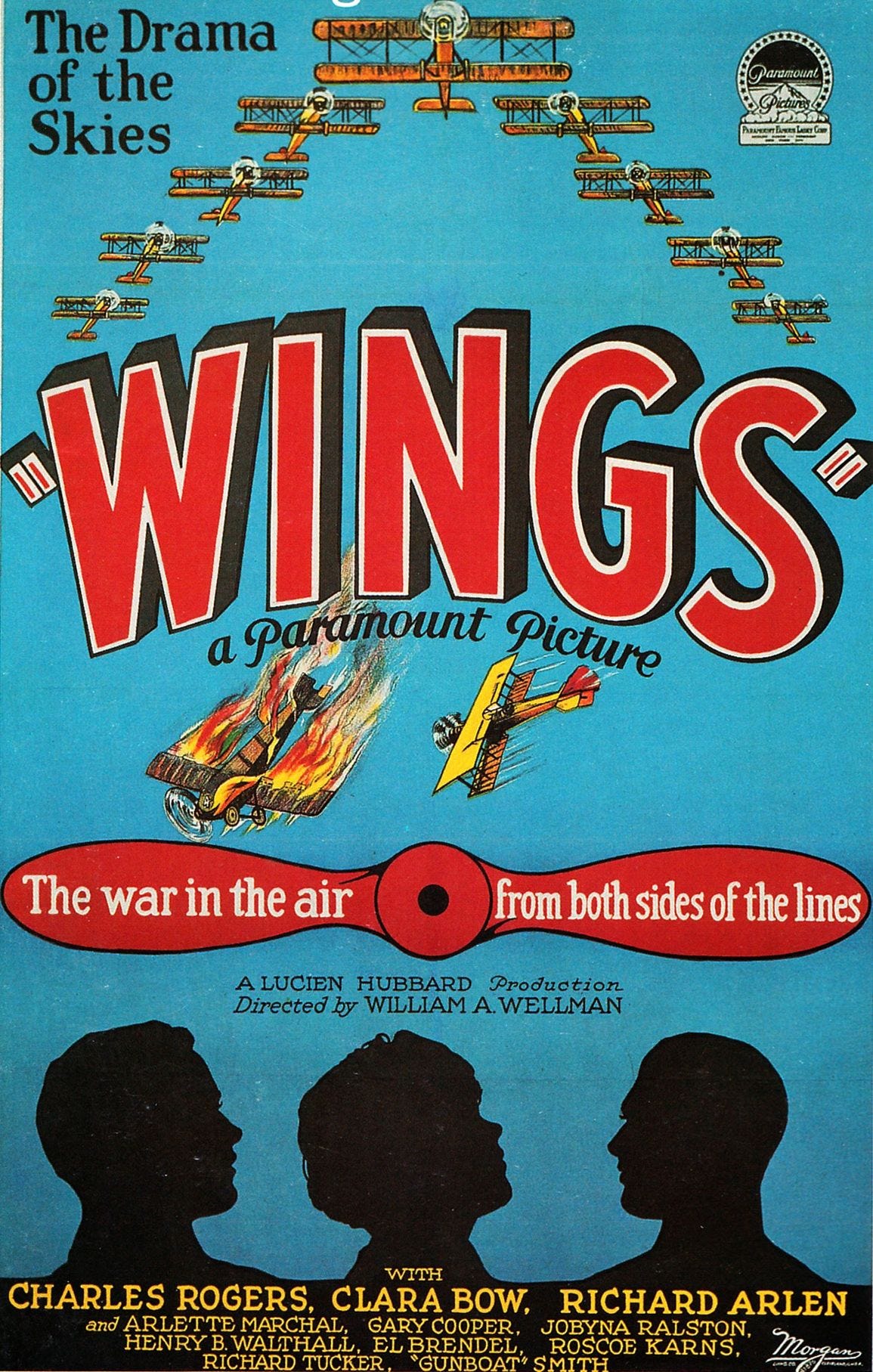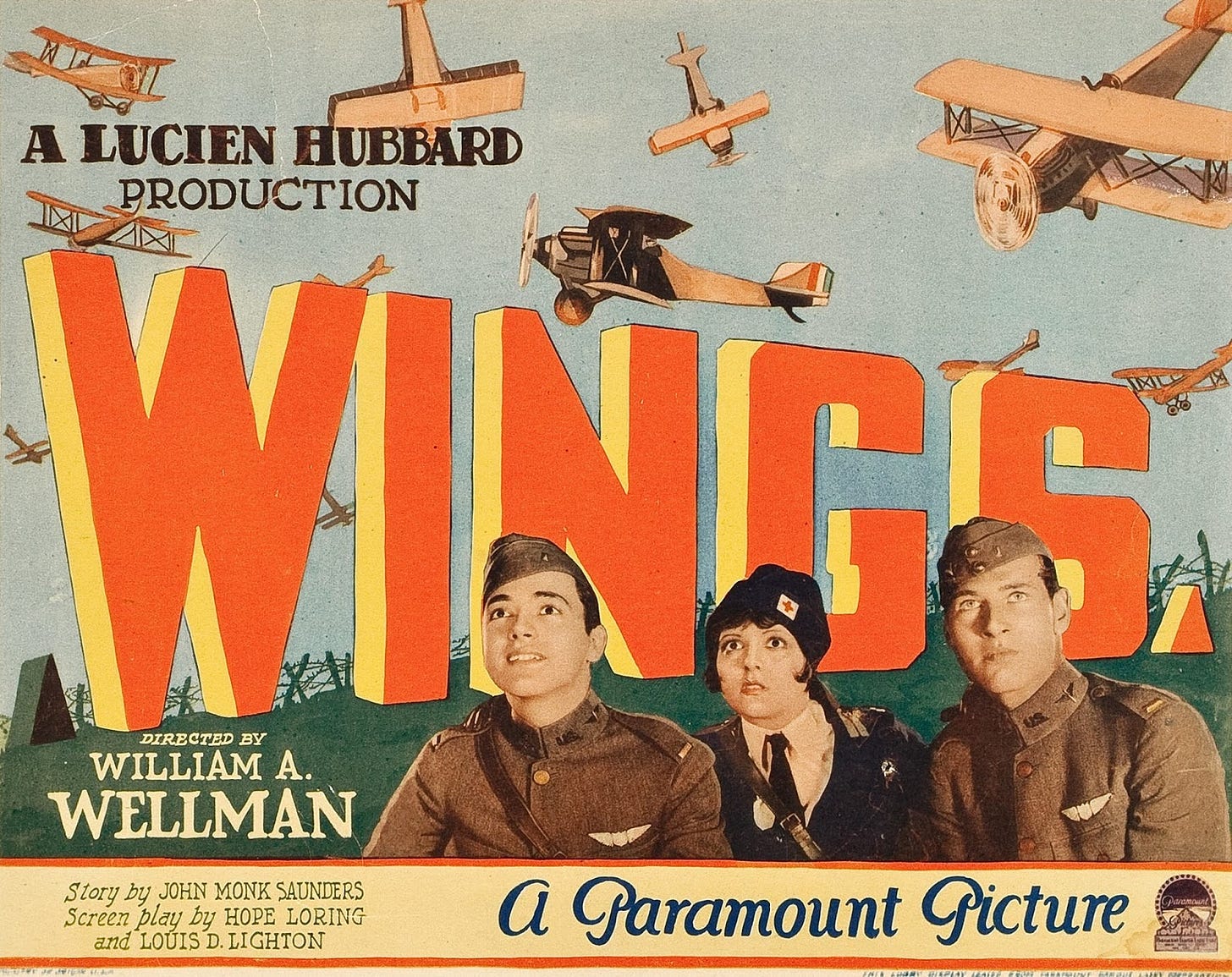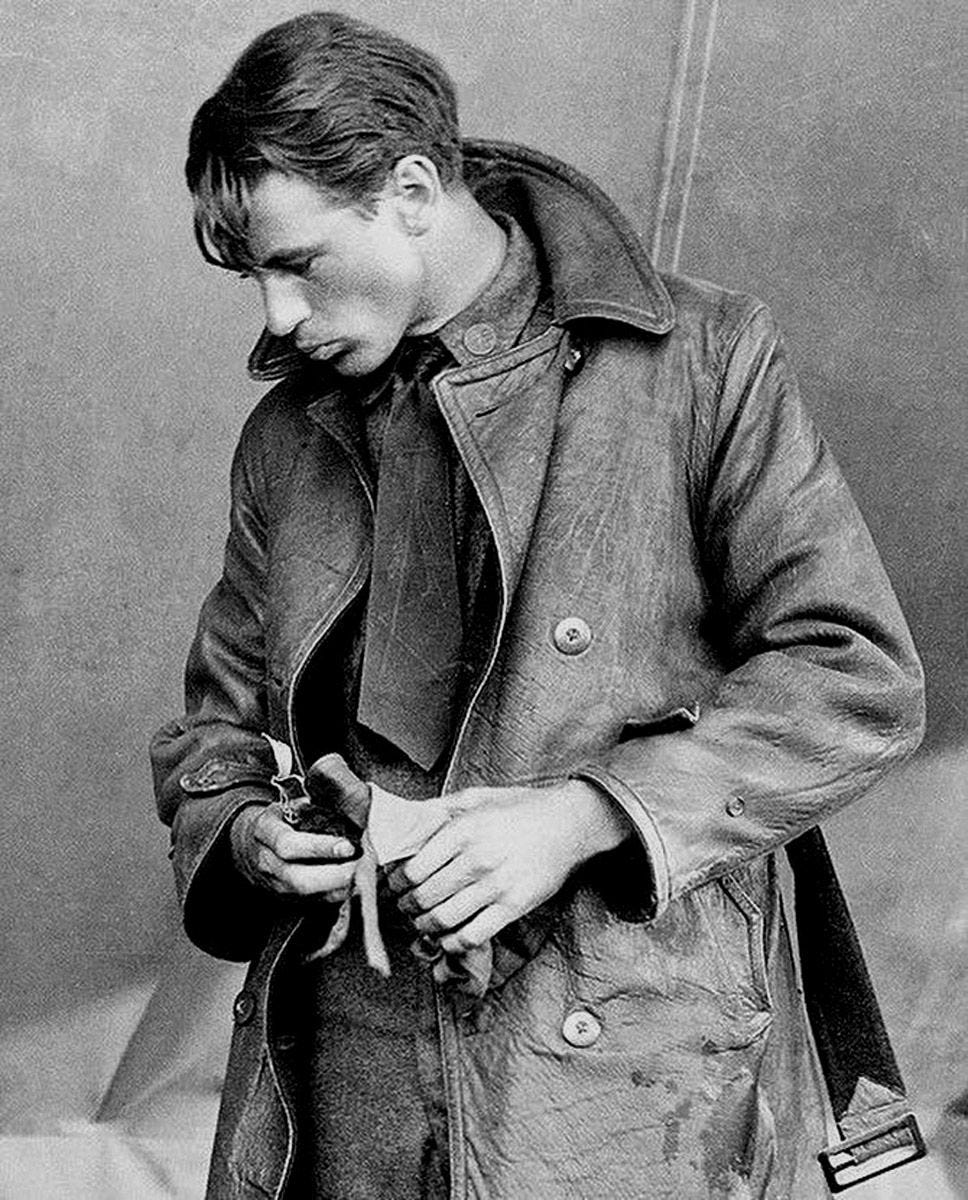Wings (1927) Review
How the First Best Picture Winner, and First Film To Depict Two Men Kissing, Holds Up
Sitting down to watch a silent film, and a Best Picture (Technically “Outstanding Picture”) winner at that, you often expect to be quite bored, but in fact I was drawn in pretty immediately. The film almost fully kept my attention for its 2-hour plus runtime, and I think it’s for 4 main reasons:
1. In general the 2012 Restoration is very well done, and while it does have a certain budget effort to it, I think where it really counts is the sound effects of the battles, but also the score which accompanies every moment of the film. It just matches up very well with the tone and type of Americana the film is going for, and while not a full orchestra, I certainly prefer it to the organ you might usually get with Silent films. No, this is an epic film and I think the new over-the-top score reflects that.
2. Although the human interactions are very goofy and exaggerated, as was the style of the Silent Film, I liked the use of comedy in the film. I especially was fond of Schwimpf, the guy who everybody questions when they hear his German name, so he then has to rip off his shirt to show his patriotism via a ridiculous flag tattoo while the score plays the the Star-Spangled Banner as the camera zooms in. It’s hilarious. Also funny? When the same guy’s used as a literal punching bag. But don’t worry, we still like him because of how helpful and earnest he is, despite the fact he’s too bumbling to be a pilot. I also appreciated Clara Bow, who goes through the ringer trying to make the guy she likes notice her. She has a fantastic array of emotions perfect for a Silent film, able to be charming and sell the romantic comedy aspect of her character.
3. WWI still isn’t a war that’s been portrayed extensively on film, so I think the depiction here, as directed by somebody that has first-hand knowledge of the subject matter, is important, and I was fascinated by all the details. For example, the crude machines they use to spin and train the potential pilots is something I’d never seen before. It’s obviously a more idealized, patriotic and more positive depiction of the war, which was a war particularly infamous for its brutality. But it feels like Director William Wellman is spinning a tall tale from memory 10 years past the events, which is what this is. There’s allusions to how awful the war was, but no direct depictions. Wellman didn’t even get to finish the war on the battlefield, as he was sent home by injury by the time the battle depicted here took place. So the film plays like a fantasy of being the Ace pilot who single-handily saves the day, because it is.
4. Because of Wellman’s perspective, he wanted to shoot the action in a very visceral way, which still holds up shockingly well 90 years later. Sure, you can obviously tell when somebody gets shot it’s Chocolate Syrup pouring out of their mouths, but otherwise it’s insane how practical all the action is. There’s no fake backgrounds here, those are actual pyrotechnics, and actual actors flying in actual planes. You’re seeing a real aerial show play out, all using technology of the era, employing a lot of the actual equipment and vehicles from the war. It’s insane. And the ground scenes are equally impressive with use of thousands of extras, all of whom I believe were actual soldiers at the time.
If there’s one section I lost interest in however, it’s the Paris sequence. It should be more interesting because Wellman is picturing it through a very idealized and comedic manner, when I guarantee he experienced some absolute debauchery there in real life. But instead what we get is our main hero, Jack, getting drunk and seeing bubbles everywhere for 20 minutes while Clara Bow tries to get his attention, which is more than a futile attempt considering the state he’s in. I don’t know how it played at the time, but the entire sequence just stands out like a sore thumb in a film that’s usually very judicious in its pacing.
As an example of great pacing, there’s a great scene as friends Jack & David start their first real day of flying, and the guy sharing their tent is a veteran Ace played by a young Gary Cooper, who imparts upon them that their belief in luck doesn’t matter because “when your time comes, you’re going to get it.” To which he walks out, starts flying then immediately crashes to his death, leaving Jack & David to stare at the cot of their brief tent-mate.
This is good filmmaking, because although it happens rather quickly, it effectively sets up the stakes. After all, this brand new idea of using planes, which were invented not even a decade before, to shoot people down from other planes, is fucking insane! I mean, they killed Gary Cooper! And let me tell you what, even without words, Gary Cooper had some goddamn swagger.
Speaking of, although the film’s biggest criticism today is how melodramatic it is, I gotta say I bought into this bromance between Jack & David. Since Silent Film was very much a marriage of novels and moving pictures, the slides just set me up with the tone of an epic novel, where I could go along with their friendship, but also their disagreements.
For instance, Jack ironically shoots down David in a rage of vengeance, spurred on by Jack thinking David is dead. If this was made a year later, and my buying into their relationship is based more around their acting and dialogue, I don’t know if it works nearly as well. But in the unique context and style of silent film, I’m perfectly fine with a plane propeller stopping being the signal for his dramatic death.
I think it’s also important to talk about the masculinity in this film, and how it’s used in the depiction of these traditionally brave men being patriotic heroes. That context allows for the first instances of nudity, and the first instance of a male kissing another male on film.
In regards to the nudity, there’s a specifically a scene with a room full of rear male nudity when a character is signing up for the war. This is interesting, because while you don’t need the rear nudity exactly, and I don’t remember this being a detail in any other subsequent war film, I imagine this was a detail Wellman remembered from when he signed up, which again adds to the authenticity.
As for the male kissing, the technical first instance comes in the form of a medal scene depicting a French general customarily kissing the gentlemen he’s rewarding as a show of thanks. But the more important instance comes later between Jack and Dave. Here Jack gives David a sad farewell kiss on the cheek, as David is dying, symbolizing their friendship and brotherhood.
It’s not exactly groundbreaking by today’s standards, unless you’re a Disney movie that only allows brief same-sex kissing quickly in the background, so they can cut it out for release in the more backwards-ass countries. But this is a true moment of male affection on screen, that even though extremely tame, would also be one of the only instances in cinema for the next 40-50 years.
A few years after this film, The Hays Code was implemented to ward off potential government interference in the industry by promoting “traditional values.” The code strictly limited the appearance, notion, or even suggestion of same-sex affection, which it categorized as “sex perversion.”
Getting back to this film, I think the drama here is more layered than people give it credit for. Another instance comes after David’s death when there is a great moment as Jack comes home to a town parade thrown in his honor. Jack is making his way through town on parade float, obviously confused between his status as a hero, but also the fact he killed his best friend. The only ones who aren’t a part of the celebration are the parents of his friend, David, who they know he killed. All however is shortly forgiven, as everybody just chalks it up to “War” and tries to move on with their lives as quickly as possible, just like humanity did with the actual World War I.
Thanks in part to this film, we are now able to look back on WWI as a culture, through the lens of these unique heroes. The film was commercially successful upon release with its grand scale, and several similar films followed it later, made by Howard Hughes, and Howard Hawks, among others.
For the Oscars, this became forever immortalized as its first winner of the award that came to be Best Picture. It’s the only fully Silent film to win the award, and the it’s the film that started the Academy’s long love of war films. This was cemented when “All is Quiet on the Western Front,” a ground-level view of the war, won only two years later. I obviously love this film 90 years on, after watching it for the first time. I also think it’s very worthy of all these distinctions thanks to its progressive, unique, trailblazing grandiosity.
4/5 Stars
⭐️⭐️⭐️⭐️
Currently Ranked:
#30/#94 in “Best Picture Winners, Ranked”


